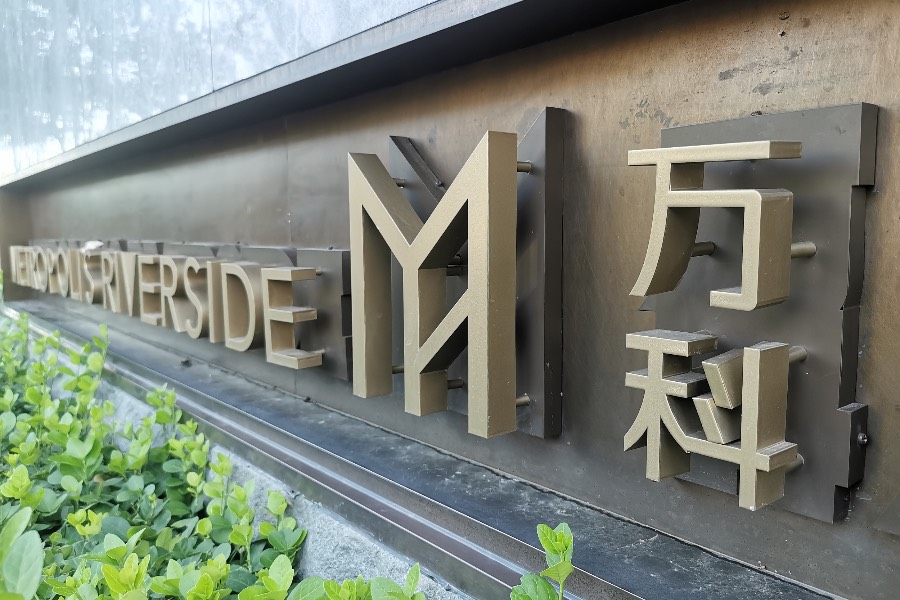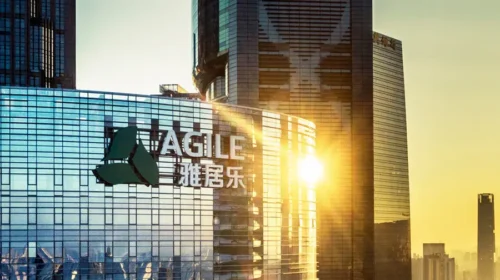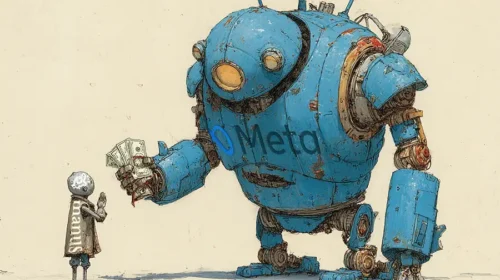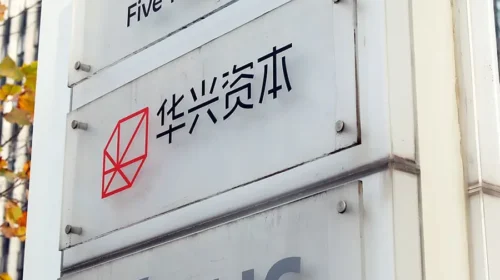Vanke not out of the woods as losses, debt keep mounting

Despite being taken over by Shenzhen Metro Group and promised full financial support, the developer, while avoiding defaults, reported its loss widened in the first half of 2025
Key Takeaways:
- Vanke’s loss widened by 21% in the first half of 2025 to 12 billion yuan, as its net liability ratio rose to 90%
- The company’s sales plummeted 46% in the six-month period, and its ranking among Chinese property developers dropped to number seven
By Cheng Shui Tong
Its darkest days may be behind it, but any new dawn still looks off in the distance for China Vanke Co. Ltd. (2202.HK; 000002.SZ).
The latest financial report from one of China’s many major struggling property developers showed it continued to bleed massive red ink in the first half of this year. Its loss for the six-month period totaled 11.95 billion yuan ($1.67 billion), 21.3% wider than a year earlier, and at the upper end of a range it gave in an earlier profit warning in July. At the same time, its sales for the period tumbled by 45.7% to 69.11 billion yuan.
The ongoing sales declines, the direct result of China’s weak property market, and low gross margins were the primary source of Vanke’s continuing profit challenges. The gross margin for its core property development business stood at just 2.6% before deducting taxes and surcharges, down three percentage points year-on-year. The gross margin for its property management services arm fared better, rising 0.3 percentage points year-on-year to 13.9%.
The company signaled its troubles are far from over by increasing its asset impairment provisions during the period, citing increasing business risk, and consideration involving some bulk asset and equity transactions at prices that were lower than their book values.
More losses ahead
The analyst community expects Vanke’s woes to continue for a while. Morgan Stanley estimates the company will continue to lose money until 2027, and forecasts its sales this year will fall between 30% and 40%.
The biggest concern lies in Vanke’s liabilities, which continue to pile up. Its latest net liability ratio reached 90.4% at the end of June, up 9.8 percentage points from the end of 2024. The company held 364 billion yuan in interest-bearing debt at the end of June, equal to 30.5% of its total assets. Its outstanding liabilities maturing within a year totaled 153 billion yuan, even though its cash and cash equivalents stood at less than half that amount at about 69 billion yuan. That means its current cash is far from enough to cover its short-term obligations, which could result in difficulties servicing its near-term debt coming due.
At the same time, Vanke experienced a net operating cash outflow of 3.04 billion yuan in the first half of the year. To meet its financial obligations, the company sorely needs China’s housing market to recover to stabilize its own housing sales – something that some have predicted but is far from certain. Otherwise, it may need to secure further financial support from its major shareholders.
Phased pressures
In its latest report, Vanke laid out some phased operating pressures it will continue to face, and said it is moving ahead with efforts to defuse such headwinds. It stressed that time would be needed to completely address such challenges.
China’s property downturn of the last few years, ending two decades of massive appreciation, has wreaked havoc on the country’s many over-leveraged developers, throwing most into crisis. As that happened, former superstars like China Evergrande (3333.HK) and Sino-Ocean Group (3377.HK) defaulted on their debt, and are currently trying to negotiate restructurings with their many creditors. Vanke has largely avoided that fate so far, thanks to the strong support of its majority shareholder, the state-owned Shenzhen Metro Group, which operates the subway system in the company’s hometown of Shenzhen.
Vanke was founded in 1988 by Wang Shi, who started out running a business selling imported office supplies in the 1980s, before expanding into the property business. His company went on to become an industry leader as China’s property market boomed, making Wang into a celebrity in his own right. Vanke’s sales reached 100 billion yuan in 2010 near the height of the boom, making it the first Chinese developer to cross that symbolic milestone. It maintained its status as a market leader in the decade after that.
But like many of its peers, Vanke ran into trouble when the market slowed and transaction volumes for home purchases began to dry up. It was already starting to struggle when Shenzhen Metro Group took a 27% stake in the company in 2016, stripping it of its private roots to become a mixture of state and private ownership.
That structure turned out to be a saving grace, offering the company a unique position in the market. Earlier this year when Vanke’s crisis was still raging, the central government in Beijing engineered an overhaul of the company’s management, with previous leadership replaced by Shenzhen Metro President Xin Jie as the company’s new chairman. Other top executive positions were also filled with people from Shenzhen Metro, marking the company’s effective nationalization.
In exchange for its management takeover, Shenzhen Metro provided financial support for Vanke, including a cumulative 23.88 billion yuan in shareholder loans at terms more favorable than what the company could have gotten on the market. The takeover restored some investor confidence, supporting Vanke’s stock and bond prices. But such support still doesn’t guarantee Vanke’s operations will thrive in the long run.
Fading market leadership
Vanke hasn’t been as resilient as some of its peers in the ongoing downturn. Its sales fell more than 40% to about 69 billion yuan in the first half of this year, far worse than the 11.8% decline for the top 100 developers during that period tracked by the China Index Academy. Its performance for the period ranked Vanke as China’s seventh largest developer in terms of sales, which was also down from number two in 2023 and number five in 2024.
The company has been destocking in recent years. It was still sitting on 462.5 billion yuan in inventory midway through this year, though that was down 10.9% from the end of 2024. What’s more, the company didn’t acquire more land for future projects in the first half of this year due to its massive debt burden and negative cash flow. The net result is that its sales are unlikely to recover substantially in the near term, which means Vanke may continue to lose its position as a market leader.
The property market’s painful correction is likely to change many of the industry’s earlier rules of engagement, including a business model where developers took on high debt and high leverage on expectation that anything and everything they built would be snapped up by eager home buyers. Like its peers, Vanke will need to transition towards a higher-quality and much more precise business structure, or risk being left behind when the sector finally starts to rebound.
To subscribe to Bamboo Works weekly free newsletter, click here






